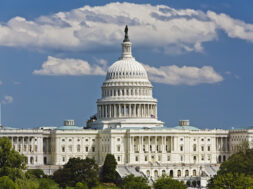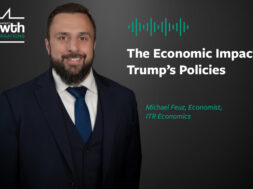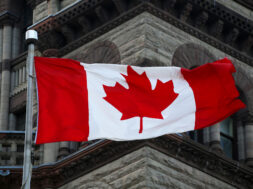Middle-Market Public Policy Roundup
Regulators to roll back some Volcker Rule restrictions, a Supreme Court decision could block private equity’s entry into the 401(k) market, and virus fears prompt Fed interest rate cut.

In this week’s roundup, we look at a proposal from five federal financial regulators to roll back some investment restrictions on banks. We also provide a summary of a Supreme Court decision last week that could block private equity’s entry into the 401(k) market. Finally, we examine the Federal Reserve’s emergency decision to cut interest rates in response to the coronavirus outbreak.
PE Firms Not Covered Under New Volcker Rule Rollback
Federal financial regulators published a notice of proposed rulemaking that addresses regulations governing the relationship between banks and private capital investors, but it leaves out private equity.
Agencies that include the Federal Reserve, the Office of the Comptroller of the Currency and the Securities and Exchange Commission proposed amendments on Feb. 28 that would roll back some exclusions that have prevented banks from investing in covered funds, such as venture capital funds.
The agencies issued a notice on Jan. 30 announcing the start of the public comment period, which will extend through April 1.
According to the agencies, the proposed rule would create new exclusions from the definition of a covered fund for credit funds—which under the current proposal include some venture capital funds—and family wealth management vehicles, but not private equity.
Section 13 of the Bank Holding Company Act generally prohibits any banking entity from engaging in proprietary trading or acquiring or retaining ownership in—or having certain relationships with—a hedge fund or private equity fund.
In November, the agencies published a final rule that adopted many of the proposed changes concerning proprietary trading and compliance program requirements, as well as targeted changes to the covered fund provisions.
The preamble to the 2019 final rule stated that the agencies would consider other aspects of the covered fund provisions and that they intend to issue a separate proposed rulemaking that specifically addresses those areas.
Supreme Court Ruling Could Block PE’s Push into 401(k) Market
A ruling by the Supreme Court against Intel Corp. last week could set up more litigation over 401(k)s investing in private equity funds.
The Feb. 27 decision, which originally concerned a statute of limitation for filing lawsuits under a federal law that applies to employers’ retirement funds, alleges the California-based chipmaker violated its fiduciary duties when it invested a portion of its employees’ contributions in higher-fee investments, including hedge funds, private equity and commodities, according to a summary from the court.
After the Supreme Court ruled in favor of a former Intel employee, the case is expected to return to a lower court.
Speaking to the Wall Street Journal, legal experts said the decision may encourage companies to outsource the management of 401(k) plans to third parties and to pool them with other plans–and presumably away from PE firms.
Responding to Virus Fears, Fed Cuts Rate
Fears caused by the outbreak of the COVID-19 virus prompted the Federal Reserve to cut interest rates this week to bolster investor confidence and provide a boost for longer-term economic performance.
In an emergency session on March 3, the Federal Open Market Committee voted unanimously to cut its benchmark rate by a half-percentage point to a range of 1% to 1.25%. The move followed a 2,000-point drop in the Dow Jones Industrial Average since Feb. 21 and a decline in 10-year Treasury yields to record lows.
“The fundamentals of the U.S. economy remain strong,” the committee said in a statement after their decision. “However, the coronavirus poses evolving risks to economic activity.”
The promise of cheaper lending offered only temporary relief as the Dow dropped 500 points in the hours after the Fed’s decision. The index then rose 1,000 points the following day. As of March 5, the Dow has dropped an additional 700 points, extending a stretch of volatile trading into a second week.
Public equities represent only some of the most immediate indicators of confidence in the U.S. economy. Industry-watchers will be determining the extent of the damage in the coming weeks and months.
Prior to the outbreak scare, middle-market companies reported strong organic growth and confidence in the year ahead, but public health concerns as well as the disruption of global supply chains will likely chip away at some of that optimism.
Are you an ACG member who enjoys reading the public policy roundup? Join our Public Policy Interest Group to receive even more in-depth coverage of federal policy activity impacting the middle market, as well as opportunities to help shape ACG’s advocacy efforts.

Benjamin Glick is ACG Global’s marketing and communications associate.


